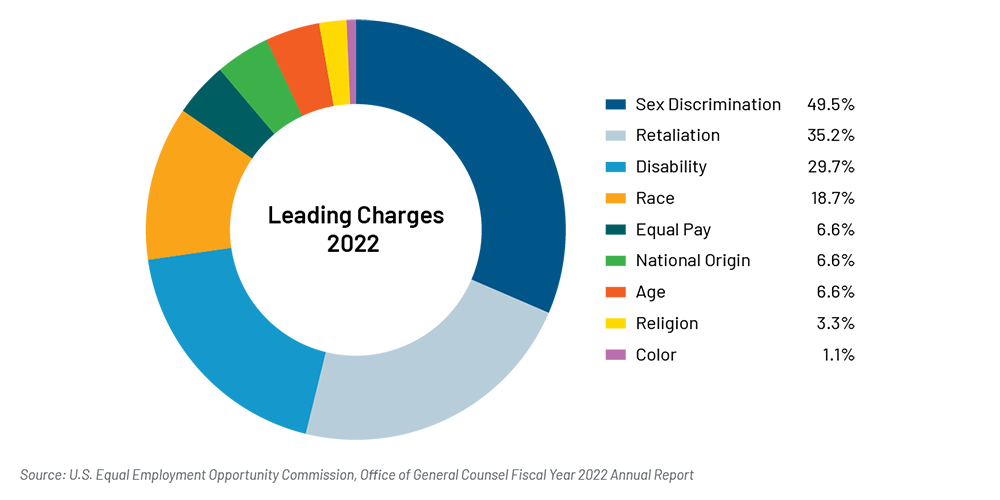-
Property & Casualty
Property & Casualty Overview

Property & Casualty
We offer a full range of reinsurance products and the expertise of our talented reinsurance team.
Expertise
Publication
Recycling of Large Lithium-Ion Batteries From a Property Insurance Perspective
Publication
The Future of Cryptography and the Rise of Quantum Computing
Publication
Personal Injury Compensation in Europe: An Updated Comparison Among Different Systems Within the European Market
Publication
Looks Like Inflation Is Sticking Around. What Do We Do Now? [Part 3 of 3]
Publication
Motor Insurance in the Post-Pandemic Era -
Life & Health
Life & Health Overview

Life & Health
Gen Re’s valuable insights and risk transfer solutions help clients improve their business results. With tailor-made reinsurance programs, clients can achieve their life & health risk management objectives.
UnderwritingTraining & Education
Publication
The Future Impacts on Mortality [Video]
Publication
Thinking Differently About Genetics and Insurance Business School
Business School
Publication
Fraud Survey in the UK & Ireland Sheds Light on Insurer Best Practices
Publication
Fight Against Fraudulent Claims – Highlights From Our South African Survey Moving The Dial On Mental Health
Moving The Dial On Mental Health -
Knowledge Center
Knowledge Center Overview

Knowledge Center
Our global experts share their insights on insurance industry topics.
Trending Topics -
About Us
About Us OverviewCorporate Information

Meet Gen Re
Gen Re delivers reinsurance solutions to the Life & Health and Property & Casualty insurance industries.
- Careers Careers
The EEOC‘s 2022 Charges and Trends

May 25, 2023
Alice Zelikson
,
Jeffrey Weisel
Region: North America
English
The U.S. Equal Employment Opportunity Commission (EEOC) recently released statistical details for the 73,485 charges of workplace discrimination received by the agency in fiscal year 2022. This represents a 19.82% increase from the 61,331 charges received in full year 2021.
The 2022 increase is the largest known since the 15% increase in 2008. Here’s a look at the past 15 years.
Number of EEOC Charges – Percent Increase or Decrease
|
Fiscal Year |
Number of Charges |
% Increase / Decrease |
|---|---|---|
|
2022 |
73,485 |
+19.82% |
|
2021 |
61,331 |
-9.07% |
|
2020 |
67,448 |
-7.19% |
|
2019 |
72,675 |
-4.90% |
|
2018 |
76,418 |
-9.30% |
|
2017 |
84,254 |
-7.92% |
|
2016 |
84,254 |
+2.37% |
|
2015 |
89,385 |
+1.01% |
|
2014 |
88,778 |
-5.28% |
|
2013 |
88,778 |
-5.72% |
|
2012 |
99,412 |
-0.54% |
|
2011 |
99,947 |
+0.03% |
|
2010 |
99,922 |
+7.12% |
|
2009 |
93,277 |
-2.23% |
|
2008 |
95,402 |
+15.23% |
Pending Charges
The number of pending charges also increased in 2022. There were 51,399 pending charges, a 20% increase over the 42,811 charges in the previous year. The increase may possibly be due to the return of workers to the office full time or on a hybrid basis, as compared to the remote work schedule of many workers in 2021 due to Covid‑19 restrictions.
This number does not include charges filed with state or local fair employment practices agencies, which may be significant in some jurisdictions.
Total Number of Charges
The total number of charges increased in 2022, and the total monetary benefits received has increased as well. The EEOC recovered $513.7 million for victims of discrimination in the private sector and local governments. The EEOC reported that out of the monetary benefits received, approximately $342 million went to more than 33,298 victims of employment discrimination in the private sector and state and local government workplaces through mediation, conciliation, and settlements.
Another $39.7 million was obtained for 1,461 individuals as a direct result of litigation resolutions and more than $132 million was awarded to 3,362 federal employees and applicants.
Charge Types
Sex discrimination is the leading alleged charge in suits filed. Retaliation is next.

Discharge was the most frequently alleged issue (63.7%) in 2022 EEOC suits filed, followed by harassment (42.8%), hiring (23.1%), disability accommodation (16.5%), and terms and conditions (15.4%). (Counts of discharge include constructive discharge and layoff.)
|
|
|
|---|---|
|
Discharge |
63.7% |
|
Harassment |
42.8% |
|
Hiring |
23.1% |
|
Disability Accommodations |
16.5% |
|
Terms / Conditions |
15.4% |
|
Wages |
9.9% |
|
Religious Accommodation |
3.3% |
.
Bases Alleged in Suits Filed Last 5 Years
FY |
Sex-Female |
Sex-Pregnancy |
Sex-Male |
Sex-LGBTQ |
Race |
Color |
Nat’l Origin |
Relig. |
Disab. |
Genetic Info. |
Age |
Retaliation |
2018 |
26.1% |
9.5% |
3.5% |
1.0% |
8.0% |
0.5% |
4.0% |
4.5% |
42.2% |
0.0% |
4.5% |
25.6% |
2019 |
29.2% |
8.3% |
4.9% |
0.0% |
11.1% |
0.0% |
2.8% |
4.9% |
36.8% |
0.0% |
4.2% |
32.6% |
2020 |
25.8% |
9.7% |
2.2% |
2.1% |
14.0% |
1.1% |
4.3% |
5.4% |
31.2% |
0.0% |
7.5% |
28.0% |
2021 |
33.6% |
6.9% |
3.4% |
0.9% |
17.2% |
0.9% |
4.3% |
4.3% |
34.5% |
0.0% |
2.6% |
37.1% |
2022 |
36.3% |
6.6% |
5.5% |
1.1% |
18.7% |
1.1% |
6.6% |
3.3% |
29.7% |
0.0% |
6.6% |
35.2% |
In FY 2022, the Office of General Counsel resolved 96 merits lawsuits, obtaining $39,746,956 in monetary relief for 1,461 individuals. Of the 96 merits suits resolved, almost all contained Title VII or ADA claims.
EEOC Focus for 2023 – Equal Pay
The EEOC noted Equal Pay Day on March 14, 2023. Women who work full time are paid on average only about 84 cents on every dollar paid to white men. The pay gap is even wider for some women of color, mothers, and LGBTQ+ workers when compared to the salaries of white men.
Black Women’s Equal Pay Day will be marked on July 27, Latinas’ Equal Pay Day on October 21, and Native Women’s Equal Pay Day on November 30.
The EEOC has focused on pay discrimination, as noted in these two examples:
EEOC v. Dell, Inc. – EEOC alleged Dell paid Kea Golden, an IT Systems Analyst with 24 years of IT experience, $17,510 less per year than a male coworker who was hired at the same time and did the same work. Dell agreed to pay Golden $75k in monetary relief, provide specialized training on equal pay laws, and post a notice of employees’ rights to Equal Pay.
EEOC v. Jerry’s Chevrolet, Inc. – EEOC alleged a family of auto dealerships in Maryland paid dispatcher Jessica Dotterweich hundreds of dollars less each month than a male dispatcher performing equal work and then terminated her after she complained. The company agreed to pay $62,500 in monetary relief to Dotterweich, adopt policies of equal pay for equal work, and train its managers and supervisors on preventing sex-based wage discrimination.
The Pregnant Workers Fairness Act
The Pregnant Workers Fairness Act (PWFA) was signed by President Biden on December 29, 2022. It will go into effect on June 2, 2023. PWFA is a new law that requires covered employers to provide “reasonable accommodations” to a worker’s known limitations related to pregnancy, childbirth, or related medical conditions, unless the accommodation will cause the employer an “undue hardship.”
The PWFA applies only to accommodations. Existing laws that the EEOC enforces continue to make it illegal to terminate or discriminate against workers on the basis of pregnancy, childbirth, or related medical conditions. The PWFA does not replace federal, state or local laws that are more protective of workers affected by pregnancy. The PWFA protects employees and applicants of “covered employers” who have known limitations related to pregnancy, childbirth or related medical conditions. “Covered employers” include private and public sector employers with at least 15 employees, Congress, federal agencies, employment agencies, and labor organizations.
Artificial Intelligence
The EEOC, U.S. Department of Justice (DOJ), Consumer of Financial Protection Bureau, and the Federal Trade Commission released a joint statement outlining a commitment to enforce respective laws and regulations to promote responsible innovation in automated systems and artificial intelligence.
According to Charlotte Burrows (EEOC Chair), they have come together “to make clear that the use of advanced technologies, including AI, must be consistent with federal laws. America’s workplace civil rights laws reflect our most cherished values of justice, fairness and opportunity, and the EEOC has a solemn responsibility to vigorously enforce them in this new context. We will continue to raise awareness on this topic, to help educate employers, vendors, and workers, and where necessary, to use our enforcement authorities to ensure AI does not become a high-tech pathway to discrimination.”1 The EEOC held they will examine the use of AI in employment decisions, including the recruitment, hiring, monitoring, and firing of workers.
2023 Black History Month
Charlotte Burrows has also indicated a commitment to changing unfair policies and practices and enforcing anti-discrimination laws in the workplace including those among Black job applicants and employees.
“In fiscal year 2022 and early fiscal year 2023, the EEOC’s work on behalf of Black job applicants and employees included the following:
- Filing 20 new lawsuits alleging race or national origin discrimination, including 17 involving discrimination against Black workers;
- Resolving 19 lawsuits alleging race or national origin discrimination, benefiting 298 individuals;
- Resolving a case for $250,000 against American Piping Inspection, Inc., in which the EEOC found the employer subjected the Black employee to racist remarks from his supervisor and discharged him because of his race and in retaliation for his complaint about his treatment;
- Resolving a case for $1.1 million against Chicago Meat Authority, who the EEOC had found discriminated against Black applicants in hiring, had subjected Black employees to racial harassment, and had fired a Black employee because of his race and in retaliation for complaining about racial harassment. The consent decree also provided for the hiring of rejected Black applicants who still wanted jobs at the company; good faith efforts to hire additional Black employees; and anti-harassment training and policies.”2
EEOC Notable Cases
2022
EEOC v. Circle K – Circle K Stores has entered into a nationwide agreement with the U.S. EEOC to resolve disability, pregnancy and retaliation discrimination charges. The EEOC determined that Circle K denied reasonable accommodations to pregnant employees and those with disabilities, subjecting them to involuntary paid leave, retaliation, and requiring employees to be 100% healed to return to work or face terminations. These actions violate ADA, Title VII, and the Pregnancy Discrimination Act. Circle K will pay $8 million to resolve this matter, which includes a class fund to compensate aggrieved individuals and will cover impacted individuals employed at Circle K between July 10, 2009 and September 26, 2022.3
EEOC v. United Airlines – United will pay $305,000 and provide other relief to a Buddhist pilot to settle a religious discrimination suit. The pilot was diagnosed with alcohol dependency and lost the medical certificate issued by the FAA. One of the requirements of United’s program for its pilots with substance abuse who want to obtain new medical certificates from the FAA is that pilots regularly attend Alcoholics Anonymous. The pilot, who is Buddhist, objected to the religious content of AA and sought to substitute regular attendance at a Buddhism-based peer support group. United refused to accommodate his religious objection and as a result, the pilot was unable to obtain a new FAA medical certificate permitting him to fly again.4
2023
Fischer Connections will pay $460,000 to settle an age discrimination suit filed by the EEOC. The EEOC charged that in early 2019 under its new President and CEO, Fischer made plans to systematically eliminate all older management and sales employees and replace them with a younger workforce. The human resources director witnessed the CEO making dozens of discriminatory, age-related comments about current and potential employees, repeatedly turning down qualified older employees in favor of less qualified employees and forcing older upper management employees out of the company under the guise of “job eliminations.” When the HR director questioned these actions, she was fired and replaced by two significantly younger individuals. Under the consent decree resolving the lawsuit, Fischer will pay $460,000 in monetary damages to the former employee, train all its U.S. employees and managers on the ADEA, distribute its ADEA policies to all employees, and post a notice about federal anti-discrimination laws and employee rights in the workplace. The EEOC will monitor how Fischer handles future ADEA discrimination complaints.5
EEOC v. T.C. Wheelers, Inc. – A suit filed in March 2023 alleges that the owners of TC Wheelers’ repeatedly harassed Quinn Gambino, a transgender male, including telling Gambino that he “wasn’t a real man” asking invasive questions about his transition, and asking “does she have female parts?” According to the EEOC’s complaints, the owners also intentionally misgendered Gambino by using female pronouns, such as “she” or “her” and stood by as employees and customers did the same. According to Charlotte Burrows, “this new lawsuit, filed one day before Transgender Day of Visibility, reflects the EEOC’s longstanding commitment to protecting transgender persons from employment discrimination, including the type of egregious harassment alleged in this case.”6 The EEOC is seeking back pay, compensatory damages and punitive damages for the affected employee and injunctive relief to remedy and prevent workplace future gender-based harassment.
Implications for the Insurance Industry
President Joe Biden’s budget blueprint, recently released, would give the EEOC $481 million, a $26 million increase from its 2023 enacted budget of $455 million.7 As a result, we anticipate the EEOC will continue to be aggressive in fighting for employee’s rights in 2023 and beyond. Accordingly, we anticipate an increase in EEOC charges being made, and therefore your EPLI Policy being potentially implicated with more frequency.
Endnotes
- https://www.eeoc.gov/newsroom/eeoc-chair-burrows-joins-doj-cfpb-and-ftc-officials-release-joint-statement-artificial
- https://www.eeoc.gov/message-eeoc-chair-charlotte-burrows-2023-black-history-month
- https://www.eeoc.gov/newsroom/circle-k-pay-8-million-resolve-eeoc-disability-pregnancy-and-retaliation-charges
- https://www.eeoc.gov/newsroom/united-airlines-pay-305000-settle-eeoc-religious-discrimination-lawsuit
- https://www.eeoc.gov/newsroom/fischer-connectors-inc-pay-460000-settle-age-discrimination-lawsuit
- https://www.eeoc.gov/newsroom/eeoc-sues-tc-wheelers-harassing-and-driving-out-transgender-employee
- EEOC Charges Increased in 2022 as Biden Pushes Budget Increase, https://news.bloomberglaw.com/daily-labor-report/eeoc-charges-increased-in-2022-as-biden-pushes-budget-increase (March 2023)




